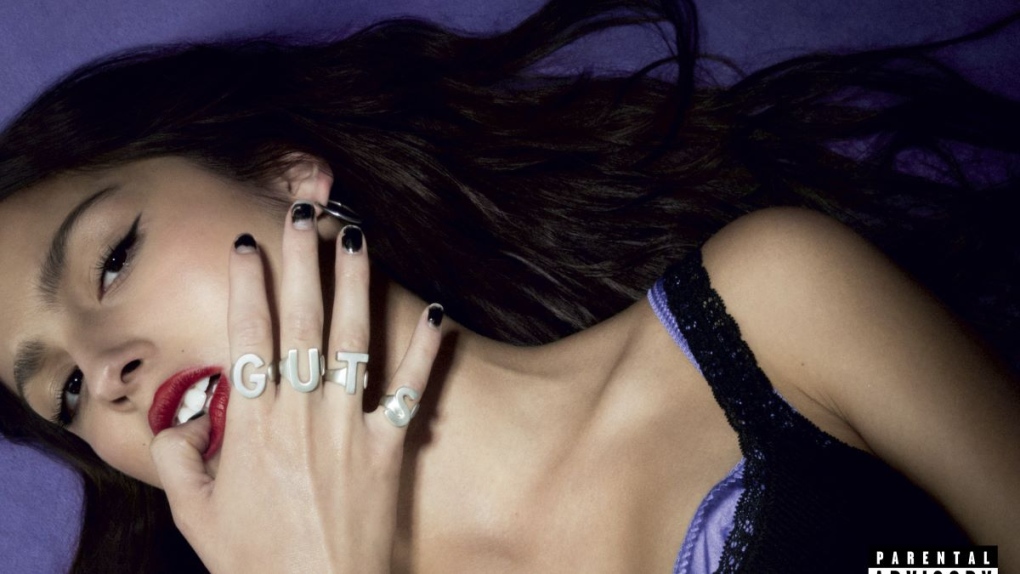
Music Review: Olivia Rodrigo rages against the machine and bad men with humour on 'GUTS'
CTV
On Friday, Olivia Rodrigo -- the Grammy winner best known for her 2021 smash single "drivers license" -- released her highly anticipated sophomore album, "GUTS."
On Friday, Olivia Rodrigo -- the Grammy winner best known for her 2021 smash single "drivers license" -- released her highly anticipated sophomore album, "GUTS."
It's an apt title, because audacious she is: Across 12 tracks, Rodrigo builds off the life experiences of a pop superstar now in the throes of fame -- and her early 20s -- with an acute wisdom.
From the bloodsucking piano ballad "vampire" to the cheeky backslide anthem "bad idea right?" (Rodrigo has kept the all-lowercase titles that styled her debut), "GUTS" is at times a pop-punk album unafraid of taking dynamic swings, and a diaristic bloodletting.
But those lead singles hid greater moments: opener "all-American bitch," inspired by a cast-off quote from a young hippie in Joan Didion's "The White Album" essay collection, is pop-punk informed by Liz Phair or, like, the most obscure Rose Melberg record. Irony and anger are her swords: "I'm grateful all the time / I'm sexy and I'm kind / I'm pretty when I cry," she sings.
"pretty isn't pretty" recalls The Cure's dreamy guitar tones, a cutting treatise on the price of impossible beauty standards.
It's easy to hear your favourite rock bands represented here, but in a style completely Rodrigo's own: Pavement punctuates "ballad of a homeschooled girl," with lyrics that could double as a AOL away message. Pick your favourite: "Searchin' ‘how to start a conversation?' on a website (How to flirt?)", or "Thought your mom was your wife / Called you the wrong name twice / Can't think of a third line."
"the grudge" is born from "drivers license" -- a courageous piano power ballad. Where whisper-singing has become the foundation for many contemporary young pop stars, whose biggest singles consequently feel restrained, Rodrigo's performance is pushed to the limits. Rage and disappointment will do that to you: They're perhaps pop's most underutilized tools -- and rock's greatest asset.
